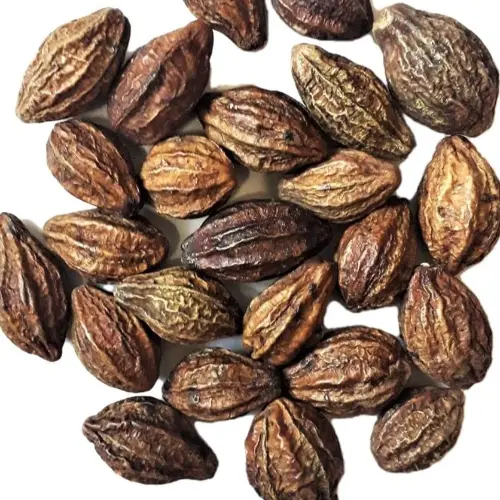Description
Harad is primarily known for its mild laxative properties, which gently promote regularity and cleanse the digestive tract without causing dependency. Beyond digestion, it is also highly regarded for its potential to support detoxification, boost immunity, and enhance overall vitality. Its rich antioxidant profile contributes to its rejuvenating effects, helping the body to maintain balance and resist various stressors. At Farm Ayurveda, we understand the profound wisdom behind Harad's traditional uses and integrate it into our natural health solutions for modern living.


